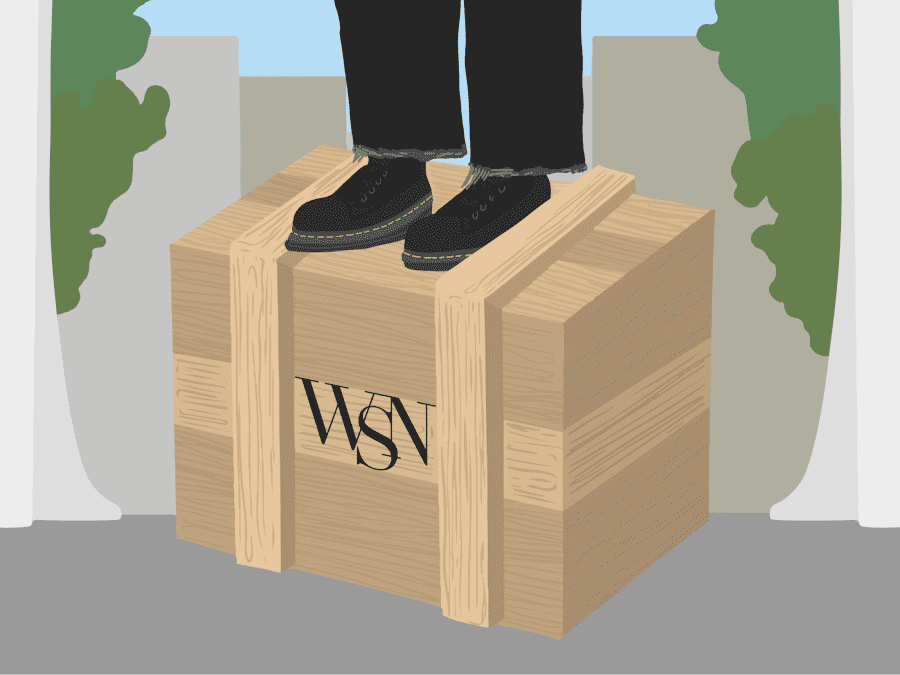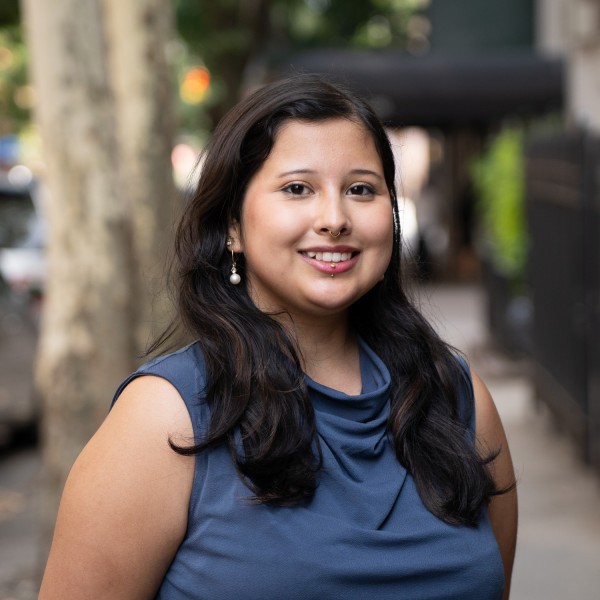The Soapbox: Qatar’s World Cup, Iranian intelligence, Russian wheat
The Soapbox is a weekly column by WSN’s news desk analyzing major developments in world news and rounding up the stories we think are worth the read this week. Global consciousness for a global university.
The Soapbox is a weekly news column rounding up stories worth reading for a global university. (Staff Illustration by Susan Behrends Valenzuela)
November 18, 2022
In Qatar, years of World Cup controversy come to a head
The World Cup, soccer’s biggest event, begins on Sunday amid continued controversy over the host country’s human rights record and religious morality laws. Human rights organizations have accused Qatar, which won the bid to host the 2022 World Cup in 2010, of mistreating foreign workers who have built seven stadiums, a new airport and hundreds of new hotels for the event.
From the moment Qatar won the vote, the 2022 World Cup incited controversy. Accusations of bribery quickly followed the announcement and a 2020 U.S. Department of Justice investigation found that officials from Qatar and Russia — who hosted the 2018 World Cup — had bribed officials. A 2014 FIFA investigation found no evidence of corruption, though an attorney involved in the process said findings were misinterpreted.
In addition to contentions about the voting process, Qatar’s methods for building the infrastructure to host the one million spectators expected to attend the World Cup have drawn scrutiny from human rights organizations. Most concerns centered around the country’s kafala system, which allowed companies sponsoring foreign workers to prevent them from leaving the country and deprived laborers of typical worker protections. It was abolished in 2021, after most World Cup construction was completed.
According to human rights groups, foreign workers have been subject to unsafe working conditions and were not paid the agreed-upon wages. Under the kafala system, sponsors are required to provide housing, but critics say Qatari companies provide only cramped, dingy rooms, sometimes forcing more than eight men to a small room. Under Qatari law, the maximum should be four. While the widely-cited number of 15,000 World Cup-related deaths is untrue, Qatar’s inability to provide a verifiable, accurate number continues to raise eyebrows, even as the opening ceremony looms.
“The migrant workers who built the stadiums and made the event possible have lost wages, livelihoods and some have even lost their lives,” read a report by Equidiem, a human rights investigation group. “Without urgent commitments from the Qatar government to compensate workers for harms caused on tournament projects and establish an independent Migrant Workers Centre, the FIFA World Cup Qatar 2022 will leave a legacy of exploitation and unfilled promises.”
In Europe, Iranian intelligence agencies invite ire
Britain and France condemned Iran’s alleged threats on their nationals during a current wave of anti-government protests in the country. Since the start of the protests, Iran has arrested individuals from multiple countries, including Britain and France. Most recently, the Islamic Republic detained two French nationals, alleging that they were intelligence agents. France denies that the arrested individuals were affiliated with intelligence services.
Anti-government protests erupted on Sept. 16 following the death of Mahsa Amini, a young woman who died in custody for allegedly miswearing her hijab. A month later, on Oct. 19, an Iranian news agency reported that the republic had seized 14 foreigners for their roles in the protests. In May, an Iranian humanitarian leader accused the country of using detained foreign nationals as hostages to force Western action, a pattern he alleged dates back to the Iran hostage crisis in 1979, where Iran took American workers hostage.
The head of Britain’s M15 — the lead intelligence service — has accused Iran of attempting to kill or kidnap at least 10 nationals or residents of the United Kingdom this year. Iran has specifically targeted journalists who they believe are an enemy of the regime.
“I see an increasing aggressiveness from Iran towards us with its unacceptable hostage taking, a regional aggressiveness … with extremely aggressive acts in the last few days on Iraqi soil,” said French President Emmanuel Macron, as reported by Reuters. “I urge Iran to return to calm and a spirit of cooperation. I call it to respect regional stability and also French citizens.”
Worldwide, a Ukraine-Russia grain deal extension averts food crisis
Ukraine and Russia have agreed to a four-month extension of a deal unblocking grain and fertilizer shipments, which will prevent rising food costs from pricing out vulnerable nations already struggling with hunger. Initially signed in July, the Black Sea Grain Initiative creates a safe corridor in the Black Sea for cargo ships to pass unaffected by the war.
Prior to the deal, prices had risen dramatically, especially in several African and Middle Eastern countries reliant on Ukraine and Russia for grain. Sudan experienced a 186% increase, while Syria saw prices rise by 86%. Turkey’s president, Recep Tayyip Erdoğan, partnered with the United Nations Secretary General António Guterres to create the Black Sea Grain Initiative.
Despite rhetoric surrounding the agreement, almost half of all grain shipped out under the deal goes to European Union countries or Turkey, not developing countries facing hunger. Because of this, Russian President Vladimir Putin has criticized the deal, accusing Europe of deceiving vulnerable nations. Countering Putin, however, a U.N. official said that the deal’s lowering of global food prices would still benefit developing nations, and therefore grain shipped elsewhere still served a humanitarian purpose.
Putin had hoped to win increased exports of ammonia, a key ingredient in fertilizer, in the deal, but was unsuccessful. Ukrainian President Volodymyr Zelenskyy has previously said he would only allow ammonia shipments if Russia agreed to return Ukrainian prisoners of war, which Russia has refused to do.
United States Secretary of State Antony Blinken praised the agreement, but still criticized Putin’s handling of the overall conflict.
“Together, we sent a clear message to President Putin that he should extend the Black Sea Grain Initiative, which was set to expire on Saturday,” Blinken said, according to Reuters. “While Russia seems to have heard the G20’s message on the grain deal, President Putin continues to ignore global calls for de-escalation, choosing instead to escalate, raining down scores of missiles on infrastructure across Ukraine.”
Contact Tori Morales at [email protected].

























































































































































